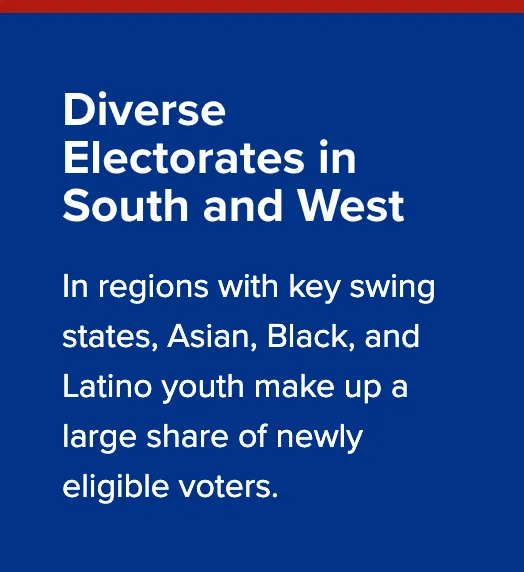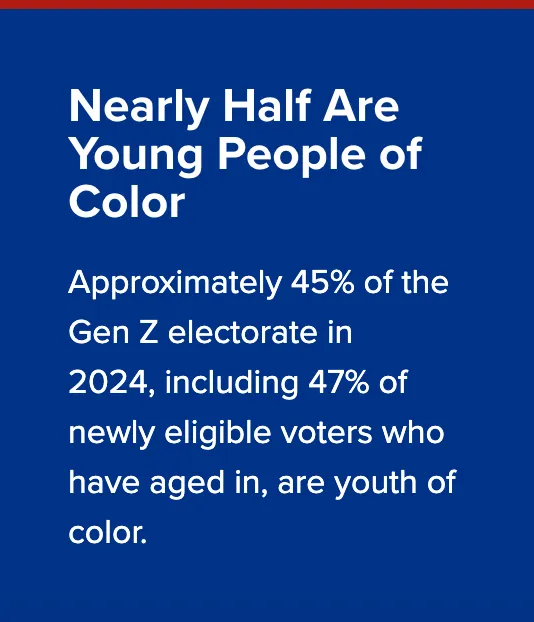As the U.S. stands on the brink of another pivotal election, the role of Gen Z in shaping the political landscape is undeniable. In recent years, Gen Z has emerged as a major force in civic life, carrying the mantle of social and civil rights movements and showing higher voter participation than previous generations. According to Tufts CIRCLE, Gen Z will have approximately 40.8 million eligible voters (between the ages of 18–27 in 2024) in this upcoming presidential election.

The Reality of Gen Z
Contrary to popular belief, this generation is anything but apathetic or disengaged. With a keen awareness of social and political issues, Gen Z has demonstrated a commitment to advocacy that goes beyond lip service and superficial activism. Proudly existing as conduits of change, Gen Z has organized protests on college campuses nationwide, turned out in historical numbers at the polls, and championed causes like climate action, racial justice, and ending genocides.
Issues Over Party Loyalty
Unlike generations before them, Gen Z has a deep commitment to issues rather than blind allegiance to political parties. They’re more likely to support candidates who align with their values, regardless of party affiliation. Their issue-driven approach challenges the status quo and forces politicians to address the pressing concerns of this generation.
There is a growing sentiment that the two-party system is outdated, particularly among Gen Z. Statistica reported that about 35% of Gen Z identify as independent, reflecting a significant shift away from traditional party affiliations. Many feel the current system has failed to give voters diversity and choice in political representation. As a result, Gen Z is at the forefront of advocating for electoral reforms that promote a more inclusive and fair democracy.
Action Over Rhetoric
For too long, the promises of politicians have been plentiful but action, quite scarce. Frustrated by years of empty rhetoric and zero follow-through, this generation is demanding that political leaders provide substantive action and progress on the issues that impact their day-to-day lives.
Gen Z is not content with waiting for change to happen. They believe in being actively engaged in grassroots organizing, community activism and political advocacy, to hold elected officials accountable and push for meaningful reform. Gen Z has proven that they are not merely passive observers but active participants in shaping the future they want to see.

Earning Gen Z’s Support
As Gen Z continues to assert its influence on the political stage, it will become increasingly evident that traditional political strategies are no longer sufficient in securing their support. This era will mark a significant shift in the political landscape where the voices and votes of Gen Z voters will carry unprecedented weight. Political parties and candidates who fail to recognize and engage with the concerns of this generation will find themselves sidelined in the political arena. Here’s how to connect with and gain support from Gen Z voters:
- Listen. Political parties and candidates must actively listen to the diverse perspectives and priorities of Gen Z voters. Learn the needs of the people by listening to their needs and concerns.
- Action. Gen Z expects more than just promises; they demand real results on issues such as climate change, racial justice and economic inequality. Political leaders must develop concrete policies and demonstrate their commitment to real change.
- Adapt. As the needs and concerns of Gen Z evolve, so will the strategies and priorities of parties and candidates. This includes embracing new communication methods and technologies to engage with this generation.


